Electoral violence and ‘Silencing the Guns’ in Africa: has COVID-19 been a conflict multiplier?
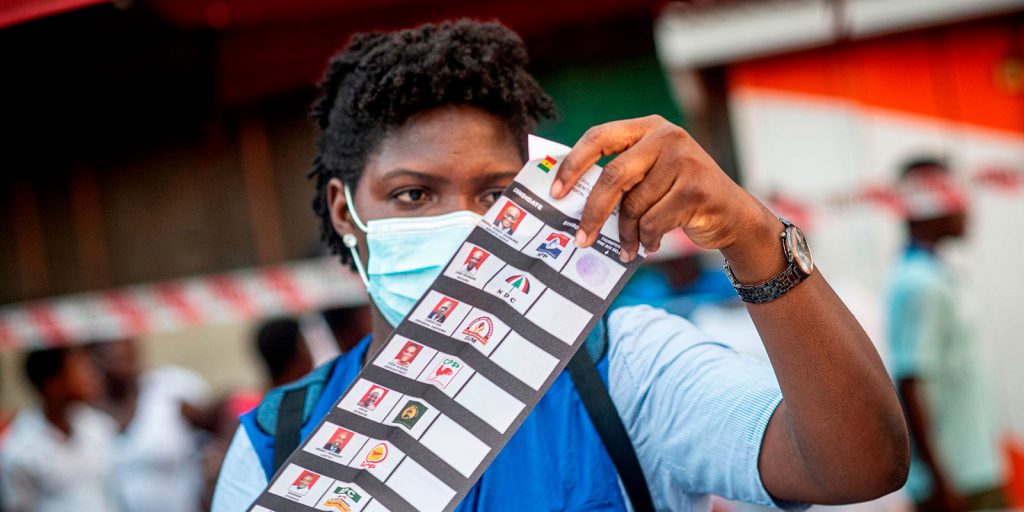
Twenty-five elections were scheduled for 2020 in Africa. While some states chose to postpone their elections, citing COVID-19, others opted to continue. Holding elections during a pandemic has resulted in a number of new challenges. Some states have exhibited resilience by managing to conduct well-run elections, despite COVID-19. However, in other cases, attempts to conduct elections during the COVID-19 pandemic have increased tensions, undermined trust in democracy and contributed to election-related violence.
The role of institutions in Silencing the Guns in Africa
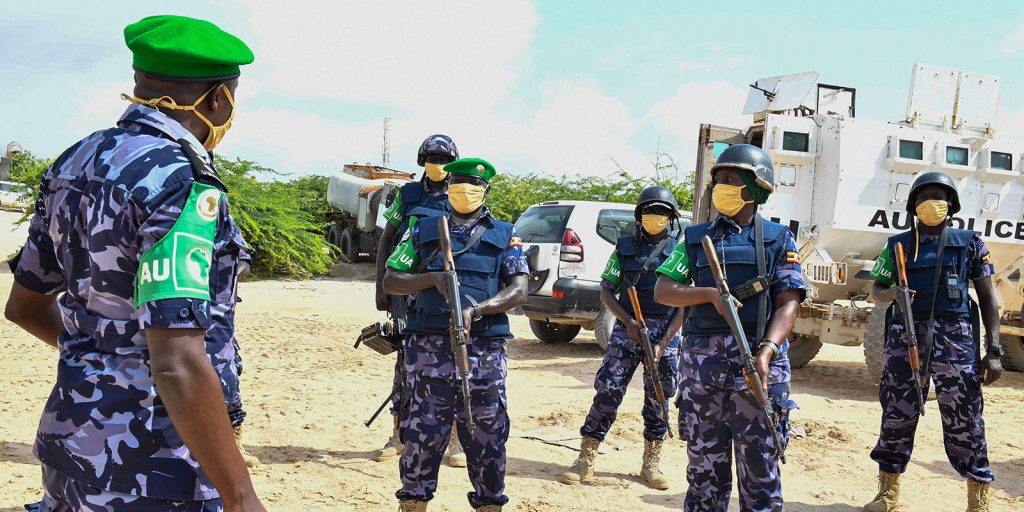
In the first week of December 2020, two key meetings were held that will impact significantly on the coming year’s peace and security agenda in Africa. The first was the United Nations Security Council (UNSC) High-Level Debate on the cooperation between the UN and regional and sub-regional organisations. The second noteworthy meeting was the African Union’s (AU) 14th Extraordinary Session on Silencing the Guns in Africa. While held separately, both meetings have informed and will direct the priorities and activities of peace actors across the African continent. The departure point dictating the synergies between the two meetings is how to leverage the partnerships among the UN, AU and regional and sub-regional organisations to silence the guns in Africa. This multi-stakeholder approach offered through institutional cooperation to silence the guns is increasingly important in a context where COVID-19 has acted as a force multiplier in several existing conflicts on the continent.
Silencing the Guns requires a multi-pronged approach
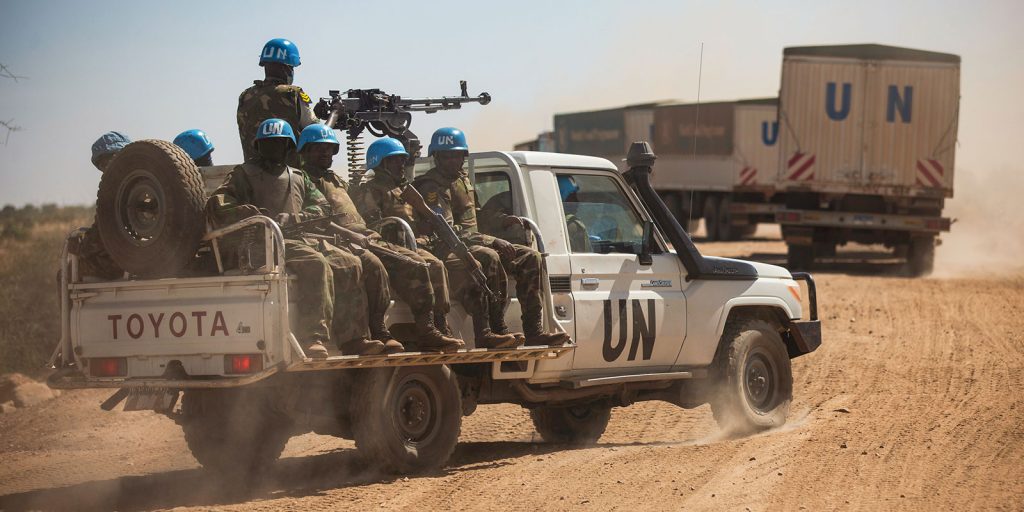
The African Union Heads of State and Government had marked the year 2020 with the theme “Silencing the Guns: Creating Conducive Conditions for Africa’s Development”. As a flagship project of Agenda 2063, Silencing the Guns by 2020 was adopted in 2013 during the Organisation of African Unity/African Union 50th Commemorative Anniversary Summit of African Heads of State. The vision of the 2013 Solemn Declaration was to achieve the goal of a conflict-free Africa, to make peace a reality for all our people and to rid the continent of wars and civil conflicts.
COVID-19 and North Africa: impact and resilience
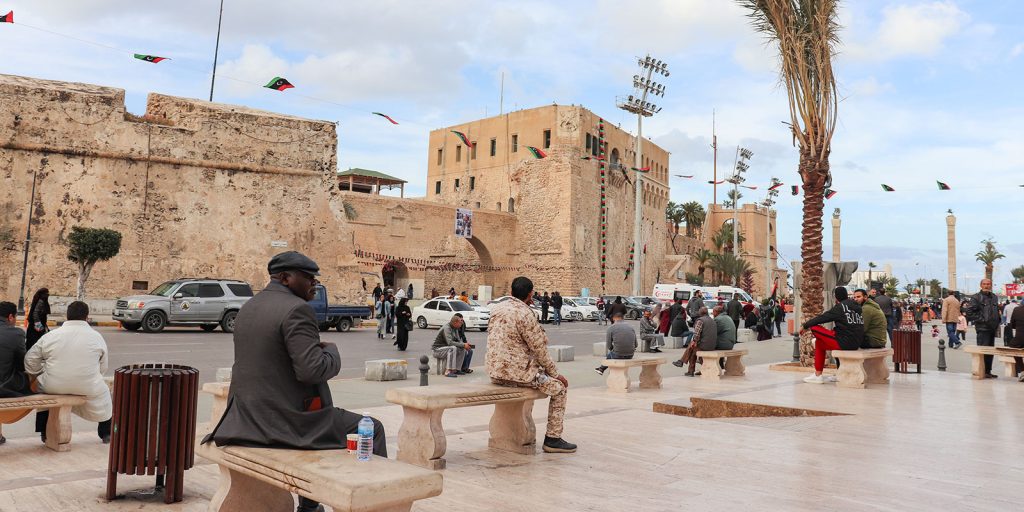
The human toll of the COVID-19 pandemic has been more limited in Africa than elsewhere. At the same time, the pandemic has exacerbated existing threats, fragilities and vulnerabilities – including in North Africa, the second-worst affected region of the continent – hindering international efforts to sustain peace, especially in conflict-affected settings such as Libya. The socio-economic impact of COVID-19 has also been significant, leading countries in the region to adopt a range of response measures with a view towards strengthening the resilience of societies and economies in the face of the pandemic.
Ethiopia’s civil war: competing visions on the nature of the state
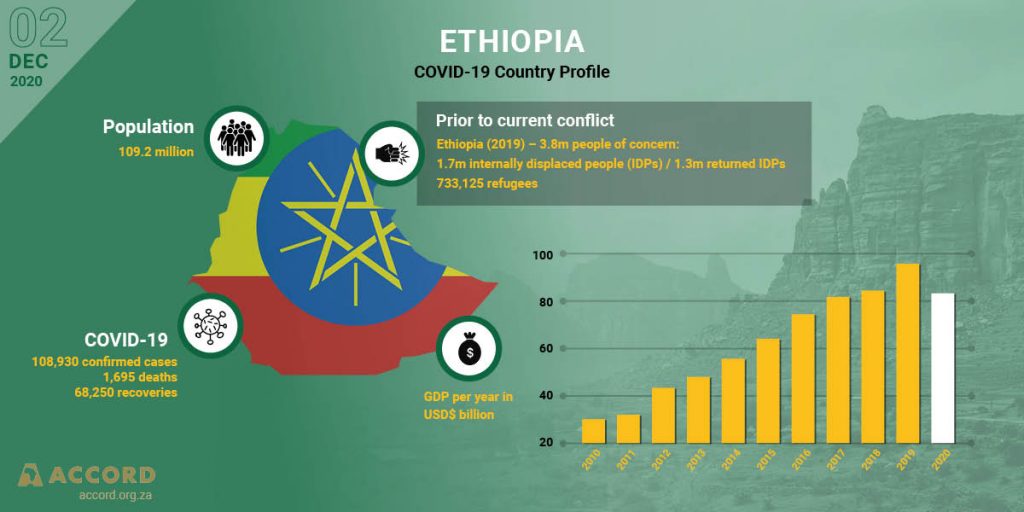
Tensions between the Ethiopian government and regional government of Tigray came to a head on 3–4 November, after the Tigray People’s Liberation Front (TPLF) attacked a federal government position in Mekelle, Tigray’s capital. Prime Minister Abiy Ahmed responded immediately with air strikes and ground attacks. While the underlying causes of the conflict relate to competing visions over the nature of the Ethiopian state, the immediate cause of the fighting was the National Election Board of Ethiopia’s (NEBE) decision in March to indefinitely postpone the elections that were scheduled for August 2020, due to COVID-19.
COVID-19-related ceasefires in Africa: an opportunity to Silence the Guns?
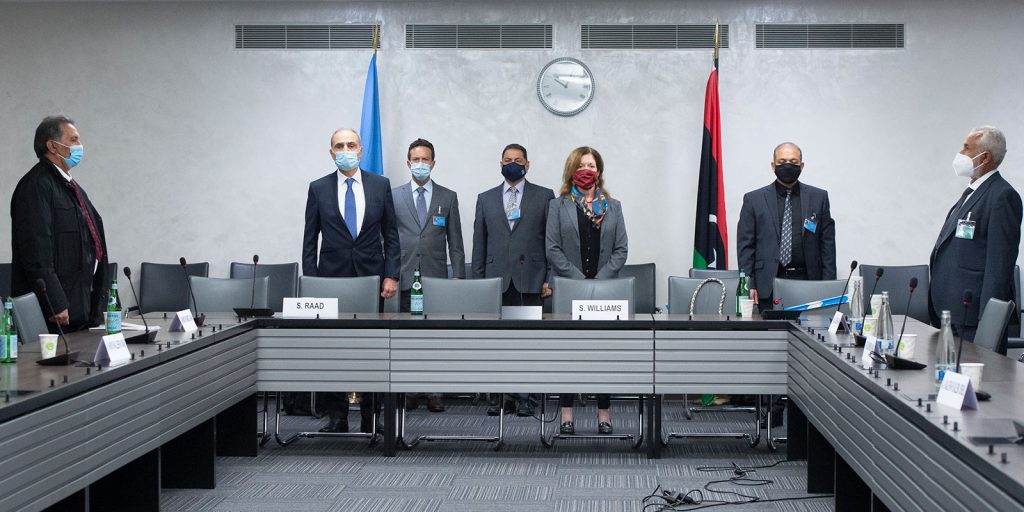
COVID-19 has significantly impacted peace processes in Africa, but it has also offered opportunities, however small, for peace. On 23 March 2020, United Nations Secretary-General (UNSG) António Guterres made an appeal, echoed by African Union (AU) Chairperson Cyril Ramaphosa, for a global ceasefire in an effort to redirect attention and resources to fighting COVID-19. In the context of the AU’s campaign to “Silence the Guns”, the UNSG explained that ceasefires would create more space for humanitarian services and diplomatic intervention in conflict areas. While experiences of conflict on the African continent may have presented conditions that are highly unlikely to result in any immediate ceasefires, some African cases have presented significant and interesting responses to the UNSG’s call. This piece briefly examines the trajectory of the seven African cases of ceasefires in relation to COVID-19, and looks at the implications for silencing of the guns.
Climate change, COVID-19 and the Lake Chad conflict
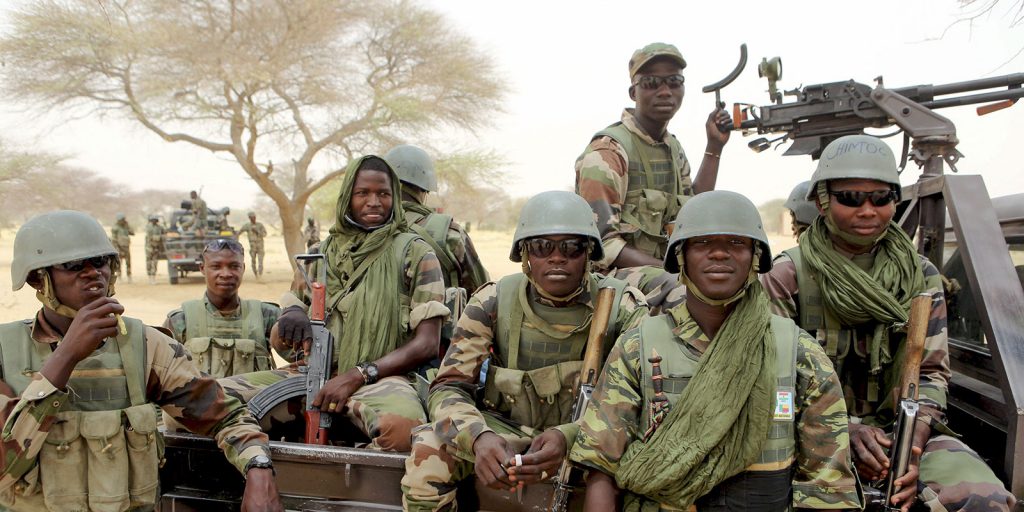
Climate change is contributing to shaping the security and development context around the Lake Chad Basin. The governance deficits, underdevelopment and socio-economic plight of communities living in the Lake Chad Basin have been further exacerbated by environmental stresses and, most recently, also by the COVID-19 pandemic. Climate-related droughts exacerbate water shortages and related stresses, aggravate existing social vulnerabilities and impair the abilities of communities to adapt to changes in their social-ecological systems.
Blended Stabilisation? Experiences from the Lake Chad Basin region
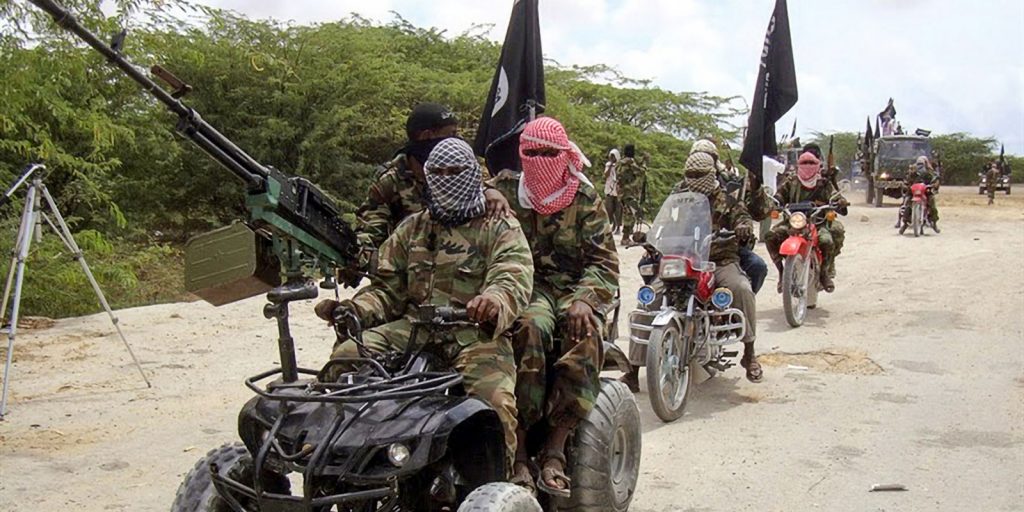
A blended approach to stabilisation is emerging in Africa. It is characterised by a response to crisis-affected settings, which combines the predominance and sometimes necessary means of hard-security interventions and soft-security measures associated with political and development responses. The Lake Chad Basin experience represents a model that could create prospects for enduring stability in the region. It could also resonate in other parts of Africa, especially in the Horn, where there is a growing policy debate by the African Union (AU) and partners for reimagining regional and international support to the security environment in Somalia and the region.
The impact of COVID-19 on peace and security in the Lake Chad region: the role of community and societal resilience
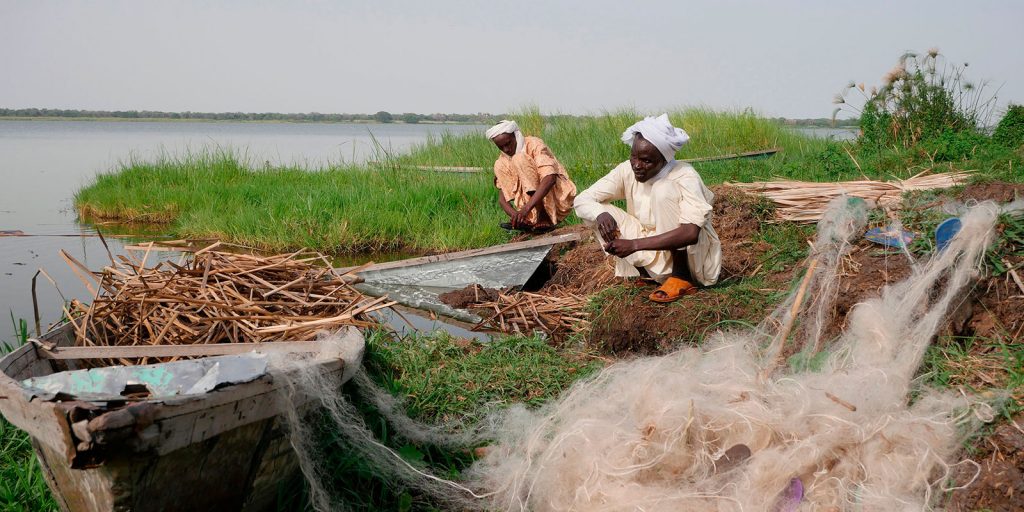
The end of the second decade of the 21st century has been characterised by an increase in the decades-long disruption in the Lake Chad Basin. A trifecta of climate change, conflict and, recently, the COVID-19 pandemic has exacerbated a humanitarian crisis, whose foundation is embedded in decades of deep neglect, a lack of governance, a proliferation in ungoverned spaces, and the increased boldness and resilience of terrorists groups, including Boko Haram, the Islamic State of Iraq and Syria (ISIS) and elements of Al-Qaeda. A military campaign, led by a multitude of national, regional and international partners, as well as a growing civilian effort, coordinated by the Lake Chad Basin Commission, the African Union (AU), affected governments and international support, has perhaps been beset by a crisis of imagination. While the terrorists, though currently diminished, have been able to adapt and innovate, the state response is still hesitant and slow.
COVID-19 exacerbating existing security, social and livelihood challenges in the Lake Chad Basin region
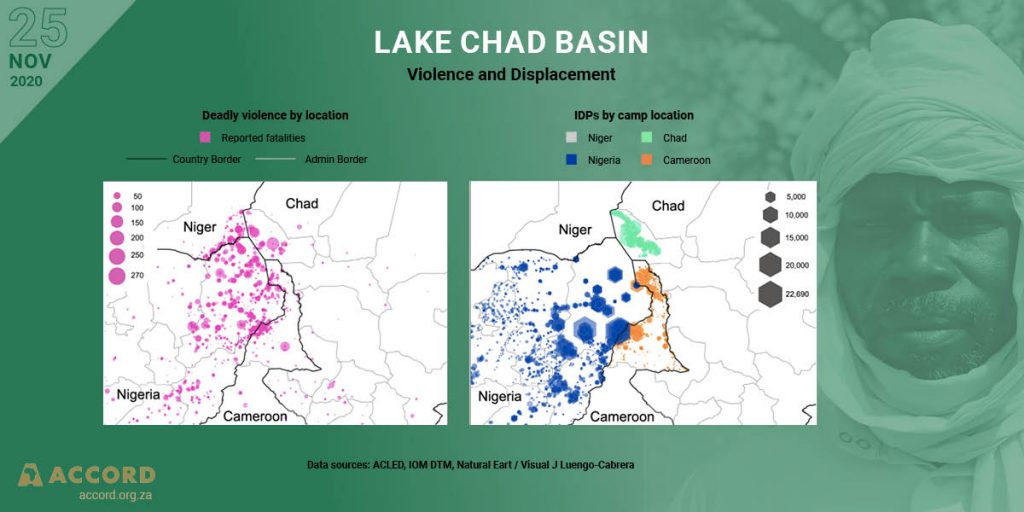
The Lake Chad Basin is faced with a multidimensional crisis, largely as a result of a complex combination of factors that include terrorist activities, extreme poverty and a changing climate. The combination of these factors has triggered significant insecurity and the displacement of populations. The area has grown into one of the most complicated humanitarian emergencies in the world, with threats to the livelihoods of over 45 million inhabitants. The outbreak of the COVID-19 pandemic in the region has therefore exacerbated existing challenges, making an already dire situation worse. The pandemic has significantly heightened the economic needs in the region and has presented serious challenges to the livelihoods of people in this region. These factors feed into conflict triggers, which contribute to further instability in the Lake Chad Basin.
